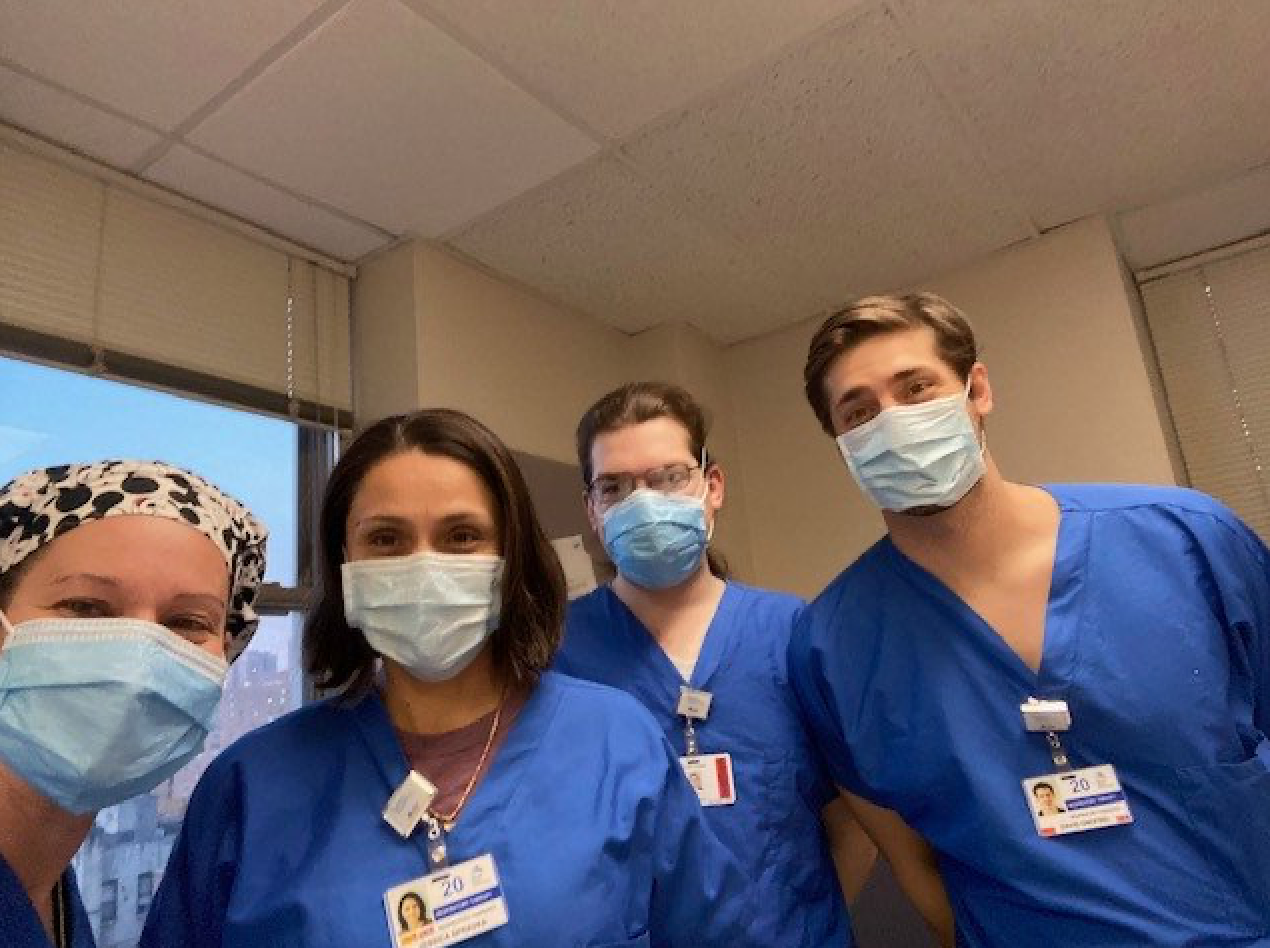I’m a respiratory therapist at Kettering Medical Center in Kettering, Ohio. When the coronavirus crisis began, the health center placed several employees on furlough. As a result, I would be out of work for at least a month, and could apply for government benefits. But instead, I decided to look into opportunities to put my skills to use. I thought, “I can’t go on unemployment when I know other people need help.”
I went on Facebook and looked around at open positions — and areas that were most in need — and decided on New York. This great company, Jackson Therapy, placed me at Mount Sinai Beth Israel. It’s been 60 days since they began battling COVID-19, and they were short-staffed until they started getting help from those of us willing to travel to help. Jackson Therapy is working with #FirstRespondersFirst, an initiative supporting first responder healthcare workers with a range of needs — including accommodations — as they serve on the front lines of the pandemic. And through their program, I was set up in The Renaissance Hotel in New York City.
My situation wasn’t exactly easy. I have six children, and it was very difficult to leave them all, especially my 9-month-old daughter. My husband is taking care of all the kids back at home and doing a great job, but I know it’s hard for him being alone. Also, I am still nursing — so I’m pumping, freezing, and mailing my milk back home. It’s an ordeal! If the staff at the hotel weren’t as wonderful as they all are, I don’t know that I could’ve done this. Before I even arrived in New York, I spoke with the team, and they put me at ease — reassuring me that they would help in whatever way possible — and they truly have.
No matter how busy they are, they help out with a smile on their faces. They are respectful of boundaries and mindful about following safety guidelines, such as only allowing one person in the elevator at a time and adhering to six feet of social distance. The hotel staff have made going to work so much easier — by helping me, I can do my work to help others.
At the hospital, each day is about 12 hours. We usually have anywhere between six and 12 patients, and we manage their critical respiratory needs and care. I get called on for all kinds of things — transport, weaning of equipment, oxygen needs, airway maintenance.
While I am at work I’m not nervous about being exposed to the virus; luckily, we have plenty of PPEs. But what has been hard is seeing certain patients that I’ve been able to get to know deteriorate. It’s very difficult to watch their conditions worsen — it’s hard seeing them struggle and suffer.
My hope from the very beginning was that I’d be able to help in whatever way I can — and that my presence could make things a little bit easier for both the staff and the patients.
— as told to Lindsey Benoit O’Connell
Conceived by Harvard T.H. Chan School of Public Health, Thrive Global, and the CAA Foundation, #FirstRespondersFirst is an initiative created to provide first responder healthcare workers, ranging from minimum-wage hourly workers in home care settings to social workers, nurses, physicians, and beyond, with physical and psychological resources they so desperately need as they serve on the front lines of the COVID-19 pandemic.


